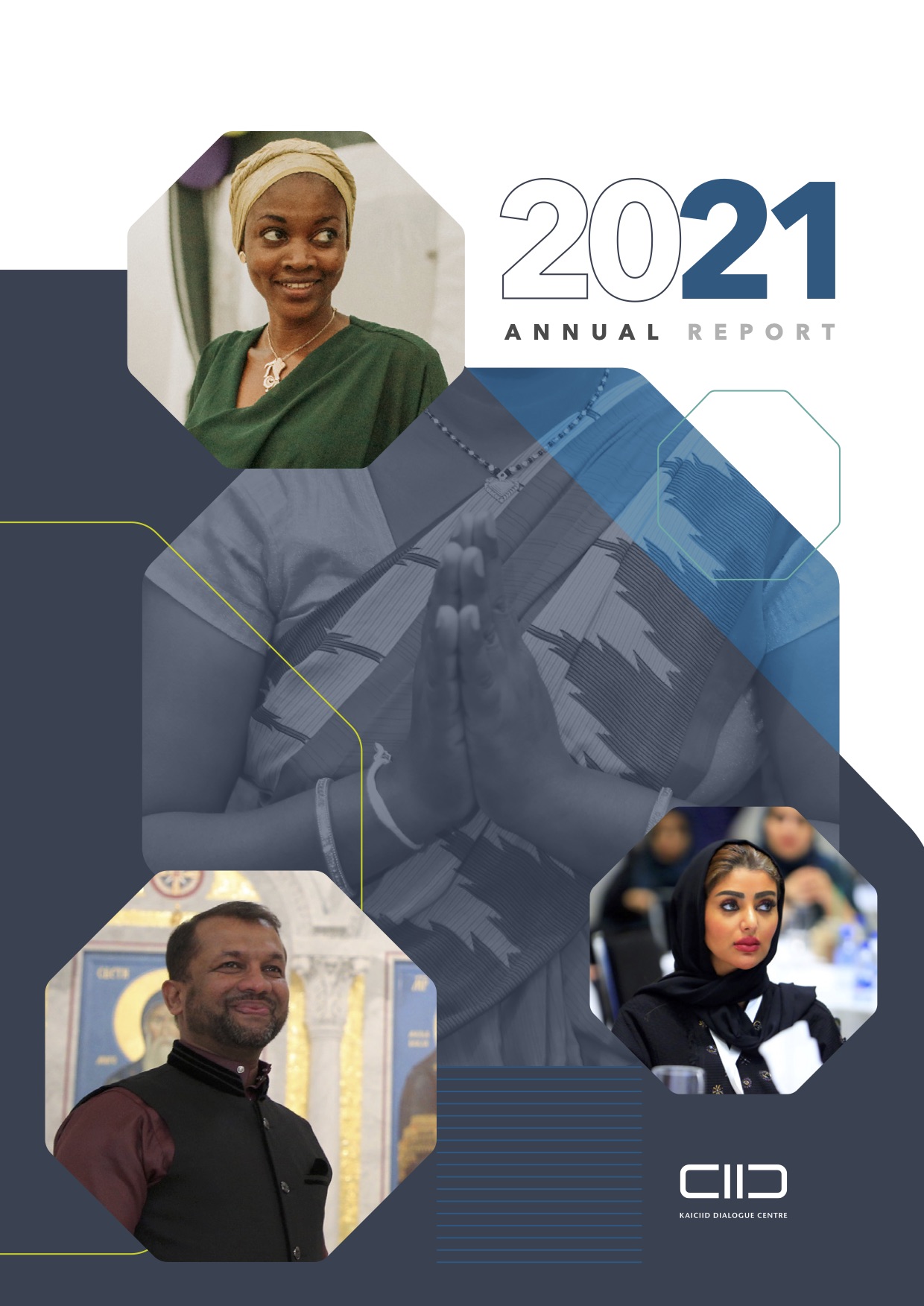2021 Annual Report
2021 Annual Report
Terms and Conditions
Preservation of immunities
Nothing herein shall constitute or be considered to be a limitation upon or a waiver of the privileges and immunities of KAICIID, which are specifically reserved.
Disclaimer
The Material published on this website is for informational purposes only. Whilst reasonable efforts have been made to ensure the accuracy of the Material published on this website, KAICIID makes no warranties or representations as to its accuracy, completeness, reliability, suitability, currency or comprehensiveness and assumes no liability or responsibility for any error or omission and/or for any loss, damage, liability or expense arising in connection with or attributable to any action or decision taken as a result of using or relying on the Material of this website.
Intellectual Property
The Material contained in this website, including without limitation text, software, scripts, graphics, photos, sounds, music, videos, material, interactive features, and files is owned or licensed by KAICIID and subject to copyright and other intellectual property rights under law. Unauthorized reproduction, copying, including any alteration, translation or disassembly work, distribution, transmissions, broadcasting, sale, licensing or any other form of exploiting is not permitted unless prior written consent has been granted from KAICIID. Users will be held responsible to KAICIID for damages in case of non-observance of this clause.
Provided these Terms and Conditions are fully respected, a User who maintains a website can include hyperlinks to KAICIID’s website or to any of its pages on that site, without having to ask permission. However, this does not include permission to use KAICIID’s logo or its intellectual property without its prior written authorization. A link to KAICIID’s website may not be used for the promotion of an organization, company or individual or of any commercial products or services.
This site may contain advice, opinions and statements of various information providers. KAICIID does not represent or endorse the accuracy or reliability of any advice, opinion, statement or other information provided by any third party. Some of the Material in KAICIID’s website may contain references to Material from third parties whose copyright must be acknowledged by the User of the website, by obtaining the necessary authorization from the copyright owner.
Use of the Material
The Material shall be used for lawful purposes only. In particular, it may not be used to transmit defamatory, offensive or abusive Material or Material of an obscene or menacing character.
Please note that without specific written authorisation from KAICIID:
i. The source Material must not be altered or amended in any way, and any other restrictions associated with specific items of Material (for example, third-party copyright) must be respected;
ii. Users may include the Material in internal reports, and for educational and research purposes, and/or reports to clients, on an occasional and infrequent basis, provided that all such Material is clearly attributed to KAICIID, and bears a notation that it is copyrighted by KAICIID. For any other use, the express written permission must be granted by KAICIID. Other than as authorized herein, Users may not reproduce, distribute, display, sell, barter, publish, broadcast or otherwise circulate any of the Material to any third party;
iii. Any copyright notices contained in the Material must not be altered, deleted or concealed. The Material must not be stored in a shared electronic archive or database;
iv. The User may not copy, republish, lend, post on servers, transmit or redistribute to any mailing lists this information for commercial purposes or for compensation of any kind. Commercial purpose means work generated for, or resulting in the receipt of income, pro bono or research work done with the hope of earning money in the future as a result of the work, and work which will be later used for commercial projects even if not so used now.
The User agrees to indemnify fully and to hold KAICIID indemnified from and against any claim brought by a third party resulting from the use of the website and in respect of the losses, costs, actions, claims, expenses or liabilities whatsoever suffered or incurred directly by KAICIID in consequence of the breach or non-observance by the User of these Terms and Conditions.
If this Site contains bulletin boards, chat rooms, access to mailing lists or other message or communication facilities (hereinafter collectively “Forums”), the User agrees to use the Forums only to send and receive messages and materials that are proper and related to the particular Forum. By way of example and not as a limitation, the User agrees that when using a Forum, he or she shall not do any of the following:
(a) Defame, abuse, harass, stalk, threaten or otherwise violate the legal rights (such as rights of privacy and publicity) of others;
(b) Publish, post, distribute or disseminate any defamatory, infringing, obscene, indecent or unlawful Material or information or any other content that advocates unsafe or illegal activities (e.g. drug abuse, bomb making) or features graphic or gratuitous violence;
(c) express any view that could be considered hate speech (speech which attacks or demeans a group based on race or ethnic origin, religion, disability, gender, age, veteran status, and sexual orientation/gender identity);
(d) Upload or attach files that contain software or other Material protected by intellectual property laws (or by rights of privacy and publicity) unless the User owns or controls the rights thereto or has received all consents therefor as may be required by law;
(e) Upload or attach files that contain viruses, corrupted files or any other similar software or programs that may damage the operation of another’s computer;
(f) Delete any author attributions, legal notices or proprietary designations or labels in any file that is uploaded;
(g) Falsify the origin or source of software or other Material contained in a file that is uploaded;
(h) Advertise or offer to sell any goods or services, or conduct or forward surveys, contests or chain letters, or download any file posted by another User of a Forum that the User knows, or reasonably should know, cannot be legally distributed in such manner.
The User acknowledges that all Forums and discussion groups are public and not private communications. Further, the User acknowledges that chats, postings, conferences, e-mails and other communications by other Users are not endorsed by KAICIID, and that such communications shall not be considered to have been reviewed, screened or approved by KAICIID. KAICIID reserves the right to remove, for any reason and without notice, any content of the Forums received from Users, including, without limitation, e-mail and bulletin board postings.
General
KAICIID reserves the right to change and amend these Terms and Conditions from time to time without notice, and the User hereby agrees that the new Terms and Conditions shall take precedence over the previous terms. KAICIID shall have no obligation to take the needs of any User into consideration in connection therewith.
KAICIID reserves the right to deny in its sole discretion any User access to this Site or any portion thereof without notice.
No waiver by KAICIID of any provision of these Terms and Conditions shall be binding except as set forth in writing and signed by its duly authorized representative.
Africa Region
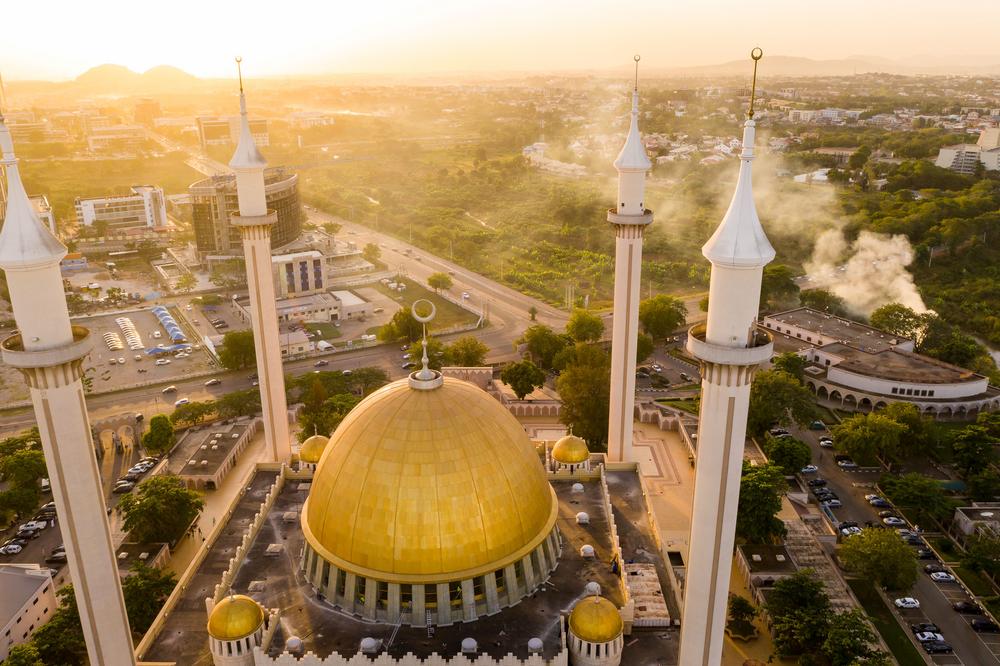
KAICIID’s work in Africa focuses on promoting peace and reconciliation through interreligious and intercultural dialogue, particularly in regions experiencing conflict, displacement, and social fragmentation. Our key initiatives support peacebuilding by fostering dialogue among religious leaders, policymakers, and civil society, addressing the root causes of conflict, and strengthening social cohesion. In countries such as the Central African Republic (CAR), Mozambique, and Nigeria, KAICIID’s programmes focus on building networks of cooperation among religious communities, enhancing local peace efforts, and creating inclusive spaces for dialogue.
The main aim of the Africa Programme is to ensure that religious, traditional, and other relevant actors are fully engaged in supporting sustained peace and security initiatives, working together to uphold Human Dignity and realise the 2063 African Union Agenda.
Working towards the achievement of the mentioned outcome, the Nigeria and CAR Country Programmes, as well as the Mozambique initiative, are used as anchors to the interventions at the regional level. Specifically, projects piloted and implemented at the national level are then showcased during regional fora for potential replication and upscaling in other countries of the region.
Central to our work is the engagement of religious leaders and local actors in conflict resolution, with targeted training that empowers communities to prevent violence and build peace. In Mozambique, our initiatives focus on reducing religious and ethnic tensions exacerbated by the ongoing conflict in the Cabo Delgado region. Similarly, in the Central African Republic, KAICIID’s work with journalists and media professionals is aimed at countering hate speech and misinformation, promoting responsible reporting, and supporting peace efforts. Through these initiatives, we are fostering a culture of transformative dialogue that strengthens communities, reduces conflict, and promotes long-term stability across the region.
Europe Region
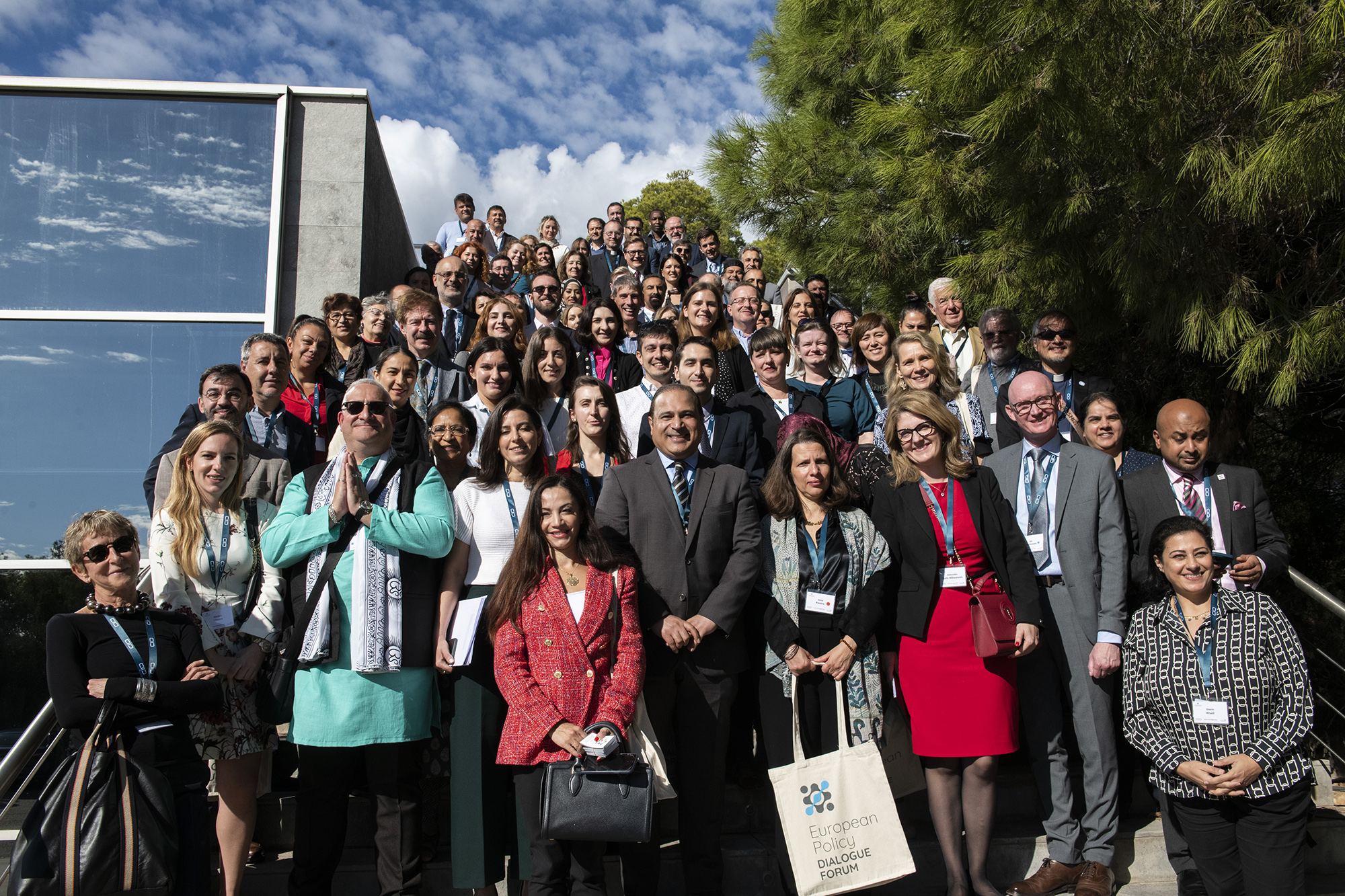
In a Europe marked by intersecting crises and growing polarisations, we harness the power of interreligious and intercultural dialogue to strengthen social cohesion and support reconciliation across the 46 countries of the Council of Europe. Our mission is to foster rights-based, equitable and inclusive societies, drawing on shared values from diverse cultural, religious, and humanist traditions. We provide safe and dynamic spaces that explore complex challenges related to identity, discrimination, exclusion and inequalities based on ethnic, cultural and religious factors. Our aim is to build trust, promote mutual understanding and learning, and foster a sense of belonging, paying special attention to marginalised groups, including religious and ethnic minorities, refugees, migrants, youth, and women from fragile contexts.
By blending policymaking and policy implementation discussions with grassroots actions and research, we engage a diverse range of partners—from secular and religious leaders at all levels to faith-based organizations, civil society, academia, and the private sector. Our interreligious platforms, capacity-development and grant-making initiatives empower individuals and communities, establish networks, and build coalitions committed to constructing the emotional and spiritual foundations needed for fair and cohesive communities that uphold human dignity for all.
Networks
Our networks bring together a vibrant community of global changemakers including religious actors, policymakers, academics and dialogue practitioners. Through them we expand and deepen the impact of dialogue initiatives, foster the exchange of best practices and provide access to funding and resources. Our networks also provide continuing education and professional development opportunities to reinforce lasting outcomes in the field.
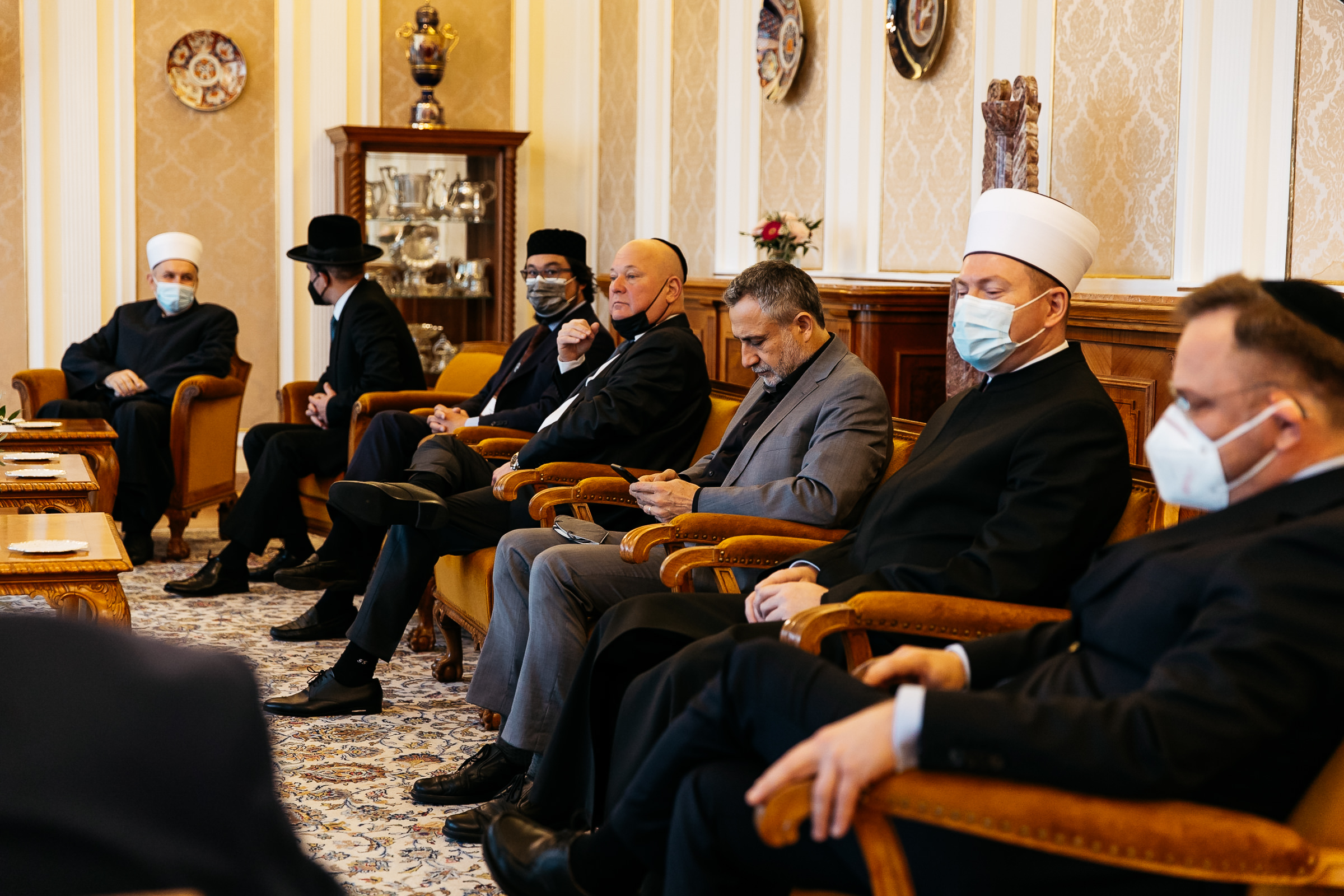
What We Do
KAICIID fosters dialogue between people and communities who would not otherwise come into contact, but whose cooperation is essential to building effective, long-term solutions to global challenges. We’ve trained thousands of leaders worldwide to use dialogue to promote religious pluralism, uphold human rights, provide a voice for vulnerable groups, counter hate speech, protect holy sites, foster interfaith education and exchange, and build cohesive, inclusive communities. We’ve also harnessed the power of local platforms, which have the trust and expertise to effect sustainable change. At KAICIID, we use dialogue as both a means and an end: from the conception of strategy to the way we foster collaboration, to the way we work together with our partners to build peaceful, just societies.
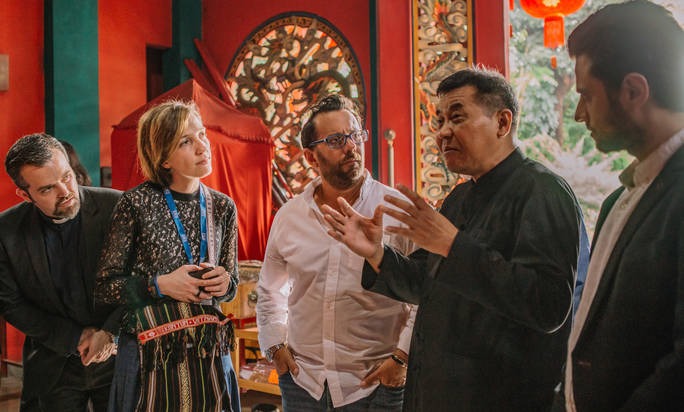
Celebrating Five Years of KAICIID
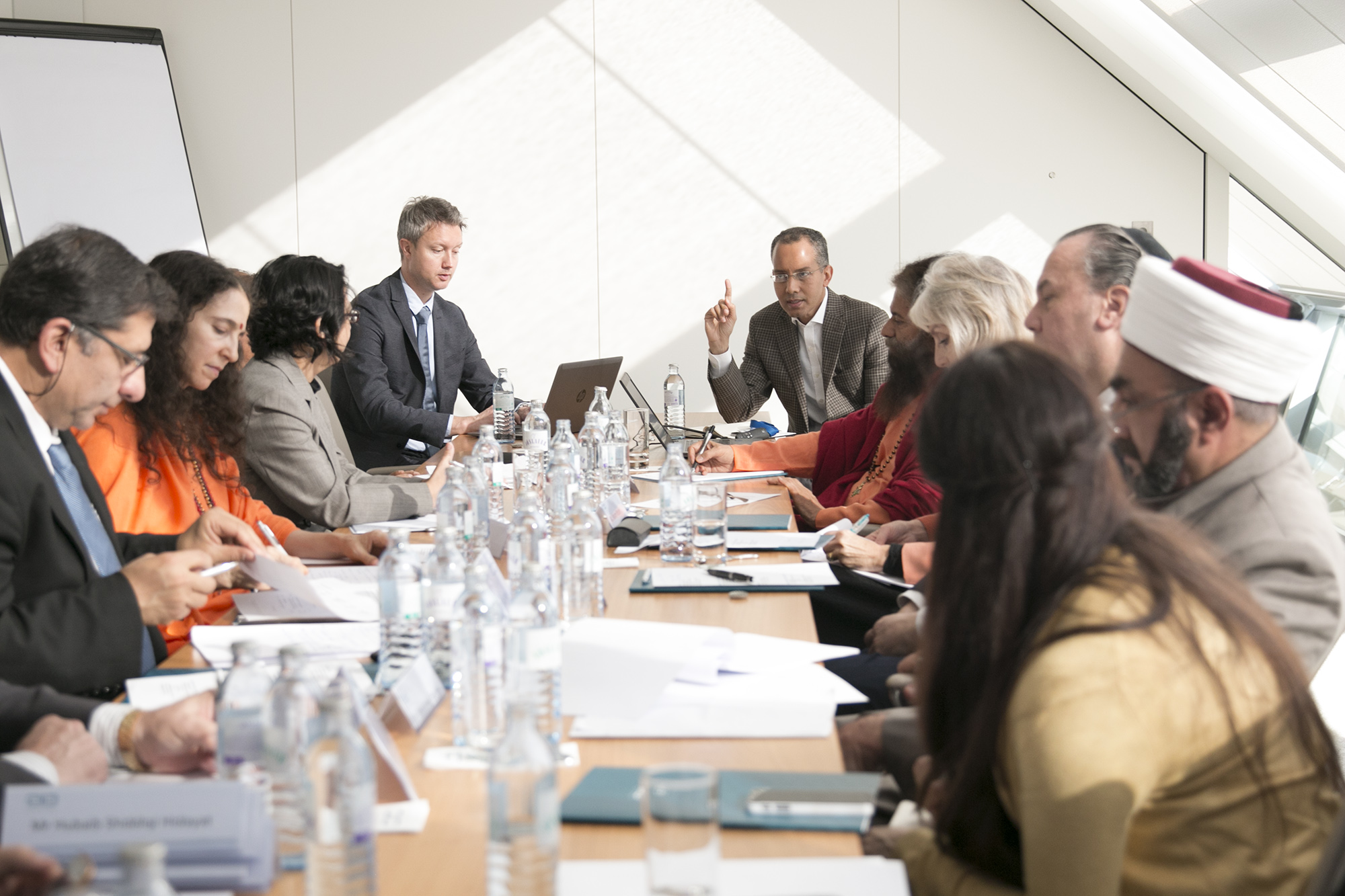
Five years ago, the International Dialogue Centre was inaugurated in Vienna. Since then, we’ve come a long way. We’re proud to exhibit our work and want to thank the organizations and individuals we have worked with in promoting our common mission for peace and dialogue globally.
In five years, we have conducted 28 conferences 31 workshops, 42 trainings, and reached thousands of trainees. We are currently working in four focus areas, which include the Arab Region, Central African Republic, Myanmar & Nigeria. In each of these focus areas, we have established country offices and have experts on the ground. We have also trained 112 Fellows as well as providing support for refugees in our home country of Austria.
This month, we would like to share some of our accomplishments and look forward to many more years of promoting social cohesion and peace through dialogue.
Dialogue Days

Dialogue Days is a KAICIID annual campaign to promote awareness of interreligious and intercultural dialogue around the world. Dialogue Days aims to celebrate interreligious dialogue as a tool for harmony, social cohesion, peace and reconciliation. Dialogue Days may become an annual event during which KAICIID and other organizations can conduct interreligious dialogues at all levels, conduct training and raise public awareness through other events and activities.
The field of interreligious dialogue is growing. More and more people are convinced that the open encounter offered through dialogue is critical to creating understanding and productive cooperation between religious communities.
Our era sees multiple conflicts along lines of religious identity. In many places, the relationships between religious communities—if not between individual members of those communities—are marked by mutual suspicion, fear and distrust. Misinformation about the motivations, beliefs and desires of the Other (people of different cultural and religious backgrounds) persist. Thus dialogue—including dialogue between secular and religious communities--is an essential part of ending conflict, and preparing for a lasting peace and reconciliation.
Interreligious dialogue is valuable even in areas where religious groups coexist in peace. Dialogue offers an opportunity for religious communities to identify shared concerns and work together in any field, from the environment to health to education.
DIALOGUE DAYS 2014
KAICIID Dialogue Days were launched in November 2014 in Nairobi, Kenya, and New Delhi, India, to raise awareness of interreligious dialogue as a tool for peace, broaden KAICIID’S service to religious and interreligious dialogue leaders, and pilot new KAICIID training material in the field.
In 2014, as a reflection of KAICIID’s programmatic focus on the Image of the Other in the Media, Dialogue Days activities centered around the theme of how the media impacts interreligious relations.
Dialogue Days in Nairobi was held from 15-18 November in cooperation with Arigatou International—Nairobi (Global Network of Religions for Children), and with the support of KAICIID’s Expert for Africa Programmes, Ambassador Mussie Hailu. Dialogue Days in New Delhi was held in cooperation with Sarva Dharma Samvaad from 22-25 November 2014. In each city, events began with two parallel training courses for religious leaders and dialogue practitioners, Media Wise and Speak Up. These were followed by high-level panel discussions on the impact of the media on interreligious relations, which brought together national figures from the realms of religion, policy, and media.
Nairobi and New Delhi were selected as the locations in which KAICIID would premier Dialogue Days because they are located in regions with complex and dynamic interreligious relations, and because of the presence of trusted local partners in each city.
The initiatives brought together religious leaders, dialogue practitioners, policy makers and media experts for training and discussion on these groups’ roles in shaping perceptions of the religious Other in East Africa.
In Kenya, one senior participant, who had changed his plans last-minute to fly in for the trainings from Tanzania, said in an address to participants that he had definitely found the effort worthwhile: “If I had missed this, I would have missed a lot.”
See Dialogue Days report here
KAICIID’s Online Course on Interreligious Dialogue (KOCID)

KOCID is being offered as a pilot starting in the Winter of 2015 using a Moodle platform. This pioneer course is the product of an ongoing collaboration between KAICIID and several universities: the University of Montreal (Canada), the Institut Superior de Ciències Religioses de Barcelona as well as the Complutense University of Madrid (Spain). Using a combination of peer-reviewed and group collaboration approaches with auto-evaluations and online-assessed technics, KOCID aims to enhance capacity-building in the field of interreligious dialogue, train instructors who will tutor KOCID, build expertise in education.
